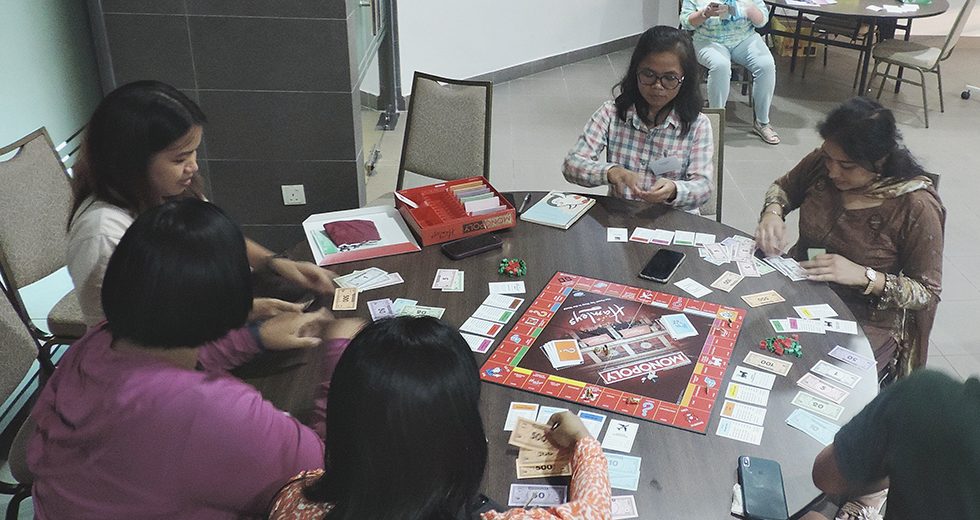GEM School explores how to make new economic world order a reality
Posted on September 11, 2023 by Phil Tanis

Held in Kuala Lumpur, Malaysia—a city of socioeconomic contrasts—from 21 August to 1 September, the 6th edition of the Ecumenical School on Governance, Economics, and Management for an Economy of Life (GEM School 2023) gathered 24 participants to rethink economic systems for a more equitable, sustainable planet.
Participants came from more than 20 countries in Africa, Asia, the Caribbean, Europe, Latin America, Middle East, North America, and the Pacific and included church leaders, pastors, and theological students, as well as finance experts, economic justice advocates, and eco-activists with a view to promoting intergenerational and multidisciplinary dialogue and learning.
“The GEM School offers the possibility of capacity building of activists and theologians who attempt to link faith to social action. It offers critical perspectives of both economics and theology and seeks to see how both can serve an economy of life,” said Philip Vinod Peacock, executive secretary for justice and witness of the World Communion of Reformed Churches (WCRC).
The programme explored the intersections between faith and economic justice through Bible studies, equipped participants with basic economics training and advocacy tools, and explored alternative economic thinking and policy recommendations.
“The GEM School reflected on the interrelated issues of gaping socioeconomic inequalities as well as the pressing question of sustainability. Among others, the lectures and discussions focused on the roots of inequality, the complex relationship between economics and the environment, and how new economic visions, indicators, policies, and economic governance structures are urgently needed and essential for co-building a more just and sustainable planet,” said Athena Peralta, World Council of Churches (WCC) programme executive for economic and ecological justice.
At the end of the programme, participants, building on their exchanges and learnings over nearly two weeks, presented a range of project proposals. Karthik Sibanayam shared a plan for theological seminaries in Malaysia to reflect on issues of economic justice as part of the curriculum. Ampri Samosir, Patricia Mungcal, Chi-Kang Chiang, and Vavauni Ljalgajean presented a joint idea focusing on network building, mutual learning, and advocacy on the intersections between climate and economic justice in Indonesia, the Philippines, and Taiwan.
Several proposals lifted up tax justice and reparations. Bruno Reikdal Lima shared a proposal for a communications project to overcome negative perceptions about tax, link tax justice to people’s daily lives, and deepen the Zacchaeus Tax campaign for global tax justice in Brazil. Coming from the context of Belize—a climate-vulnerable small island state—Rudolph Dawson proposed to develop a campaign linking tax justice and reparations for climate-related loss and damage in the Caribbean.
Florence Iminza from Kenya also shared a proposal to initiate a survey as a base for churches’ work for just taxation including of extractive industries in Africa. For Iminza, a key learning from GEM School is that, “just taxation systems are mandatory for a new international economic order. There is need for the global community of churches to build solidarity for an alternative economy of life.”
Wilfred Rigamoto, who is developing a project on alternative indicators supporting an Indigenous Pacific development narrative, could not agree more: “With solidarity and people power, we can together be and make the change we want to see in the world!”
GEM School was hosted by the Council of Churches of Malaysia and convened by the WCC, WCRC, Lutheran World Federation, World Methodist Council, and Council for World Mission as part of the New International Financial and Economic Architecture (NIFEA) initiative. NIFEA is supported with funds from Otto per Mille.
Image: GEM School students play Monopoly to understand how the economic system serves those who have resources.
(Article courtesy of the World Council of Churches.)
 World Communion of Reformed Churches
World Communion of Reformed Churches